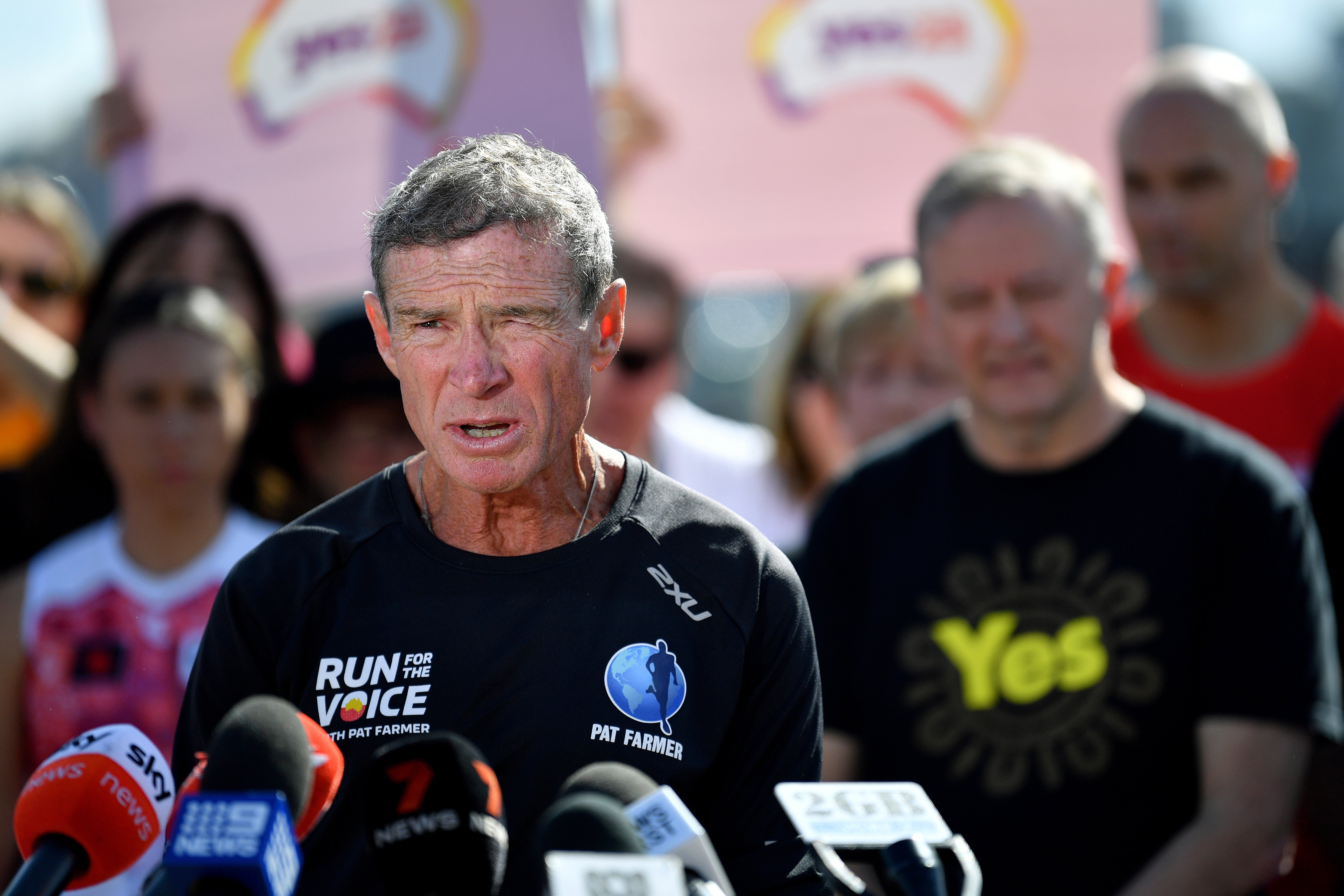Man runs almost 9,000 miles across Australia to raise support for Indigenous Voice
Ultramarathon runner Pat Farmer has ended a 8,950-mile run at the central Australian sandstone landmark Uluru after a seven-month journey to raise public support for the creation of an Indigenous advocacy body in the constitution

Your support helps us to tell the story
From reproductive rights to climate change to Big Tech, The Independent is on the ground when the story is developing. Whether it's investigating the financials of Elon Musk's pro-Trump PAC or producing our latest documentary, 'The A Word', which shines a light on the American women fighting for reproductive rights, we know how important it is to parse out the facts from the messaging.
At such a critical moment in US history, we need reporters on the ground. Your donation allows us to keep sending journalists to speak to both sides of the story.
The Independent is trusted by Americans across the entire political spectrum. And unlike many other quality news outlets, we choose not to lock Americans out of our reporting and analysis with paywalls. We believe quality journalism should be available to everyone, paid for by those who can afford it.
Your support makes all the difference.Ultramarathon runner Pat Farmer ended a 14,400-kilometer (8,950-mile) run at the central Australian sandstone landmark Uluru on Wednesday after a seven-month journey to raise public support for the creation of an Indigenous advocacy body in the constitution.
Australians will vote on Saturday at a referendum that would enshrine in the constitution a so-called Indigenous Voice to Parliament, a mechanism for Indigenous Australians to advise lawmakers on policies that effect their lives.
Prime Minister Anthony Albanese was at Uluru, which is an Indigenous sacred site also known as Ayers Rock, to welcome the 61-year-old runner’s arrival.
Albanese said he had “utter admiration and awe” for Farmer’s commitment for the cause which opinion polls suggest is unlikely to succeed.
“No one has done more than this bloke and I am very pleased to welcome him here at Uluru,” Albanese said.
Farmer said his first glimpse of the enormous rock rising from the flat Australian wilderness at a distance of 40 kilometers (25 miles) brought a tear to his eye.
“I’m glad. Very, very happy to be at this point in time, this point in the world’s time where we start to acknowledge Indigenous communities right around the world and the significance of that culture,” Farmer told reporters.
The former lawmaker's run began in Hobart on the island state of Tasmania on April 17 and traversed every Australian state as well as both mainland territories.
Uluru has special significance in the campaign to create the Voice as a means of acknowledging Indigenous Australians in the constitution.
The Voice was recommended in 2017 by a group of 250 Indigenous leaders who met at Uluru. They were delegates of the First Nations National Constitutional Convention the then-government had asked for advice on how the Indigenous population could be acknowledged in the constitution.
While recent opinion polls suggest most Australians oppose the Voice, a poll published Wednesday found 59% of Indigenous respondents were in favor.
That support had slipped from more than 80% supported suggested by polls published early this year.
The latest poll published in The Sydney Morning Herald newspaper was based on an online survey of 420 Indigenous voters between Sept. 22 and Oct. 4. It has a 4.8 percentage point margin of error.
Indigenous Australians account for 3.8% of Australia’s population. They have worse outcomes on average than other Australians in a range of measures including health, employment, education, incarceration and suicide rates. Statistically, Indigenous Australians die around eight years younger than the wider community.